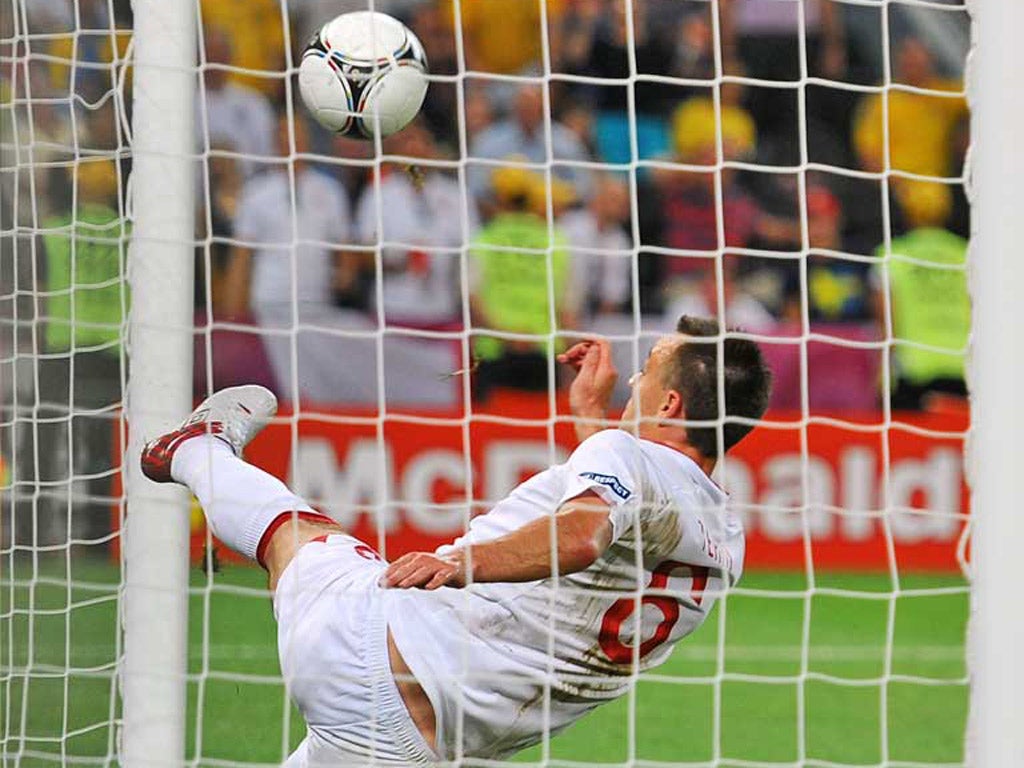James Lawton: After surviving the siege of Donetsk, anything is possible

Your support helps us to tell the story
From reproductive rights to climate change to Big Tech, The Independent is on the ground when the story is developing. Whether it's investigating the financials of Elon Musk's pro-Trump PAC or producing our latest documentary, 'The A Word', which shines a light on the American women fighting for reproductive rights, we know how important it is to parse out the facts from the messaging.
At such a critical moment in US history, we need reporters on the ground. Your donation allows us to keep sending journalists to speak to both sides of the story.
The Independent is trusted by Americans across the entire political spectrum. And unlike many other quality news outlets, we choose not to lock Americans out of our reporting and analysis with paywalls. We believe quality journalism should be available to everyone, paid for by those who can afford it.
Your support makes all the difference.England conceded a goal that was as authentic as the one they were denied in the World Cup two years ago and they suffered a night of searing pressure from a Ukraine team who had been told by their legendary coach, Oleg Blokhin, to play with greater freedom than they had ever felt before.
They did it with blistering football that stretched through a night of roaring passion and often fine skill but they couldn't beat England.
Long before the end you had to suspect that nothing could. Maybe they have made some weird arrangement with fate. Maybe the new manager, Roy Hodgson, has a trick, an insight that is releasing England on the international stage and one that he can reveal later at his leisure and in some improbable triumph.
For the moment, maybe he should just offer his thanks that some mysterious force, including maybe his own good judgment, allowed him to escape from something that should always be known as the siege of Donetsk.
Blokhin said his players had nothing to lose, England were a fantastic team who might well reach the final and if the worst happened he was sure his players would not be lined up against the wall and shot. Some of his players did not seem quite so sure.
Alarmingly for England this concern was expressed most brilliantly by two of Ukraine's youngest and most creative players, Yevhen Konoplyanka and Andriy Yarmolenko.
No one appeared to have told them either that this wasn't one of the biggest nights in the nation's and their own lives or that it was really the time Wayne Rooney unveiled his quality after missing the first two Group D games through suspension. They were sensational – and so were Ukraine as Blokhin roared them on from the touchline, yelling orders to maintain pressure on the English.
This they did quite relentlessly as Rooney struggled desperately to get into the game, most starkly when he made a horrible mess of a cross from Ashley Young.
Rooney, more than anything, looked as really you might have expected after his paucity of match action. For much of the first half he was obliged to watch as Konoplyanka and Yarmolenko stretched England quite relentlessly – and were driven on both by their coach and captain Anatoliy Tymoshchuk.
John Terry, as discomforted as any of his defensive team-mates by the sustained assault, had to block a shot from Marko Devic, Joe Hart dived to his right when Yarmolenko slightly under-hit the ball after finding clear space in front of goal, and at one point Scott Parker found himself trampled under the weight of the Ukrainian attack.
It was certainly not quite what Rooney had in mind when he returned to the team trailing the promise that England had the talent and wit to go all the way and win their first major title in 46 years. Yet if he was experiencing an ordeal of Ukrainian fire, there was a sense, though a rather desperate one at times, that his team might just be one counter-attack from deliverance.
When the chance came it was maybe inevitable that it should fall to Rooney just two minutes after half-time – and was almost a formality when goalkeeper Andriy Pyatov failed abjectly to stifle a cross from Steven Gerrard. Rooney nodded home the bouncing ball and reacted as might a man who just stepped out of a brief spell in prison.
England, though, were scarcely in the clear and depended hugely on the negligence of Hungarian additional linesman Istvan Vad, who refused to recognise a Ukrainian goal only marginally less legitimate than the one taken away from Frank Lampard in Bloemfontein two years ago. Devic believed he had the ball over the before Terry hacked it away – and within seconds, of course, so did the rest of the world.
The Ukrainians refused to believe that if you played some brilliantly inventive football all night you would not get some kind of reward. They kept pushing England to their limits. The old hero Andriy Shevchenko, not fit to start, came on to add his weight to an extraordinary fight and Rooney came off, a goal to his name but his claims that England can win this tournament perhaps under some understandably sharp review.
It could happen because of course anything can in football. If you doubt this you should simply re-run the most sweeping of the action – and then note that it is England who meet Italy in Sunday's quarter-final.
After this, you wouldn't put much beyond the extraordinary momentum – and maybe the strange alchemy – of Hodgson's new regime. It is the one that might – who knows – just be in the process of breaking all the rules.
Join our commenting forum
Join thought-provoking conversations, follow other Independent readers and see their replies
Comments